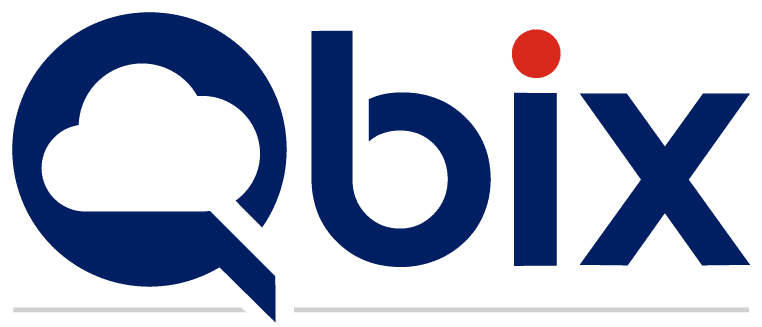Nonprofit Fraud: 6 Ways to Protect Your Organization
Most nonprofits base their culture on honesty, trust, and a solid commitment to goodwill. But sadly, an organization’s honorable mission and public image are not always resistant to fraud. According to the Association of Certified Fraud Examiners (ACFE) 2022 Report to the Nations, the median fraud loss for religious, charitable, and social service organizations was $60,000. It’s not an insignificant amount, especially for smaller entities. And since nonprofits typically have fewer resources available to help prevent and recover those losses, we’re sharing six ways to protect your organization from fraudulent activity.
Hire well
While it does take time, you can learn a great deal from a job candidate’s previous work references, pre-employment drug testing, and criminal background checks. Background checks are essential for anyone handling money. Moreover, conducting criminal background checks shows that your organization values integrity. Bottom line: It’s worth the effort to learn more about your job candidate’s background and work history before extending a formal offer.
Put protection policies in place
Because they show accountability, clear organizational policies not only protect your nonprofit from fraud, they offer increased visibility and improve your organization’s reputation. If you haven’t already done so, create a document retention policy, a policy for conflicts of interest, a detailed code of conduct policy, and a whistleblower policy. Considering most frauds are detected by employees, a whistleblower hotline may be a good investment. Also, ensure that all of your compensation policies are applied equally and fairly. Why? You don’t want anyone committing fraud because they feel disrespected, underpaid, treated poorly, or passed over for a promotion.
Once all policies are written and communicated, be sure to review, update and share them regularly with your employees, board members, and other essential stakeholders.
Create a supportive work environment
Get to know your staff well to recognize any situations where an employee might resort to nefarious activity. For example, extreme personal financial difficulty and desperation could make an employee more likely to steal, so offer a work environment that prioritizes employee well-being. Provide employee assistance programs or similar initiatives to help steer them away from unlawful behaviors. Consider mandatory vacations, job rotations, or back-up teams/employees to make it more challenging for an employee to conceal a crime. Remember, it’s not that you’re being critical of your employees. You’re simply trying to protect them and your organization.
Implement internal controls
Your internal controls could be either preventive or detective. Preventive controls are things like requiring multiple signatures or approvals on checks, keeping blank check stock (if still in use) locked away, and setting authorization limits. Detective controls include unscheduled inventory audits, having other employees reconcile bank statements, or conducting independent reviews of accounts payable lists. Controls like these identify red flags before they become significant issues.
Move to Cloud-Based Technologies
If you work with several disparate systems that don’t work cohesively together, then there are opportunities for people to take advantage. Antiquated, manual processes limit your ability to monitor transactions across the board. With a cloud-based system (like Intacct), you have one system that handles many financial tasks across multiple applications. It offers one viewpoint to monitor all activities. The increased visibility enables nonprofits to identify inconsistencies that could threaten the organization. Plus, you can easily set up customized security clearances, and there’s an audit log report for monitoring each user’s activity. And if you’re worried cloud-based technology could put your organization at risk of external fraudulent activity, fear not. A cloud-based solution like Intacct offers two-step user verification, enforced password changes, required timeout sessions, and more.
Hire an external accountant
Working with an external nonprofit accountant, like Qbix, helps safeguard your financials since multiple people are involved in overseeing them. For example, you could use an outside accounting firm for specific tasks, like expense report approvals. It helps because an independent external accountant is more likely to refuse a request that doesn’t have the proper authorizations. And think about who handles the bills, collects and deposits checks, and reconciles bank accounts. If it’s one person, it’s easy to see how you’re putting your organization at a higher risk of fraud. Outsourcing your accounting provides the segregation of duties and oversight you need to prevent any fraudulent activity and so much more.
For additional helpful advice on nonprofit fraud and how to prevent it, get in touch. Our experienced team at Qbix is happy to help you look into any possible wrongdoing while strengthening your accounting and its internal controls. Preventing fraud and outsourcing your nonprofit’s accounting is not as costly as you may think. Let’s team up today. Like many of our other nonprofit clients, you’ll be so glad you did.
Non Profit Accounting Solutions
About Us
Qbix's goal is to provide the latest cloud-based accounting technology while delivering real-time visibility into your nonprofit's financials 24/7. Numbers are our passion, but providing your nonprofit with the financial expertise needed to facilitate growth and profitability is our top priority. And because no two organizations are the same, Qbix offers the flexibility you need to accomplish your nonprofit's goals.
Qbix
500A Northside Crossing
Macon, GA 31210
(478) 787-0532
Let Us Prepare Your Form 990
Save time, money, and stress. Let us prepare your Form 990. Schedule a consultation today.






